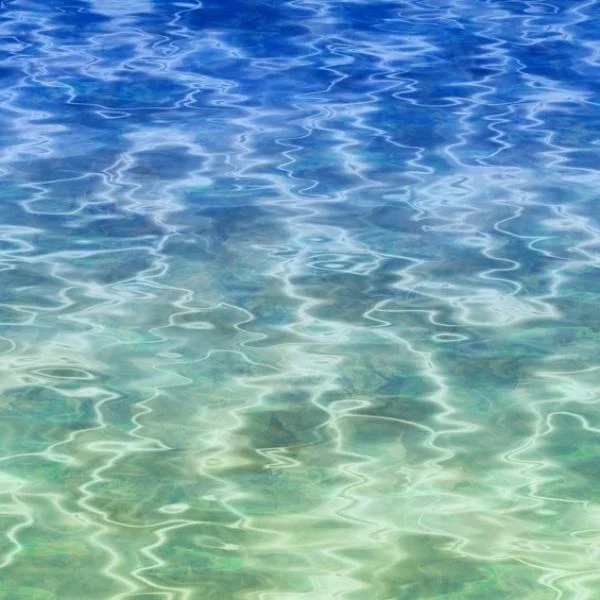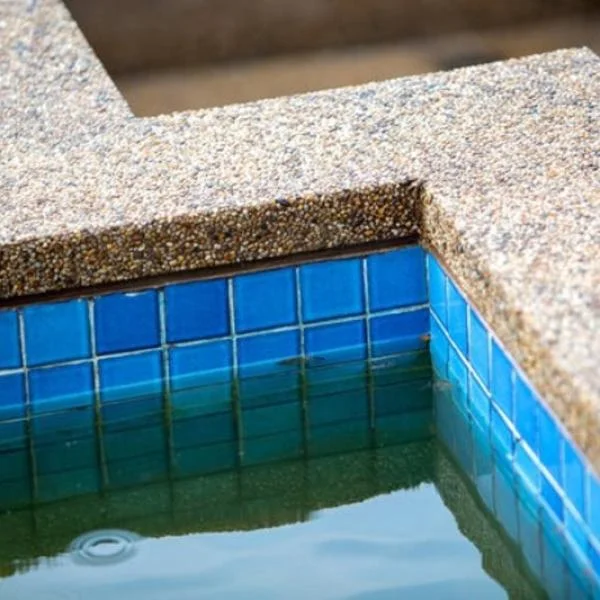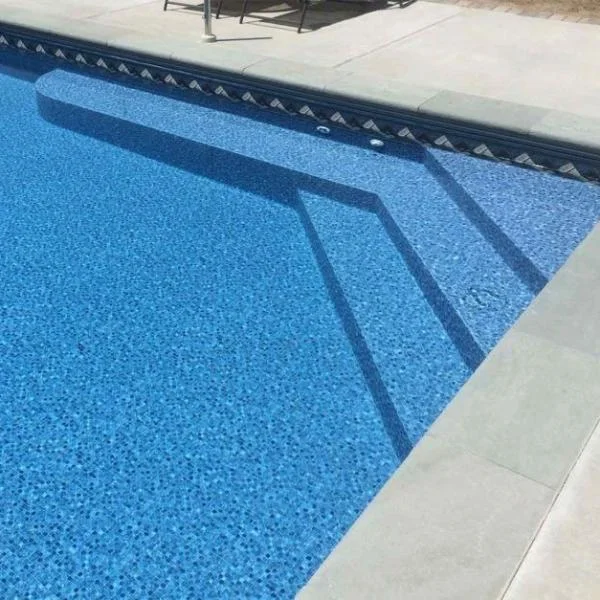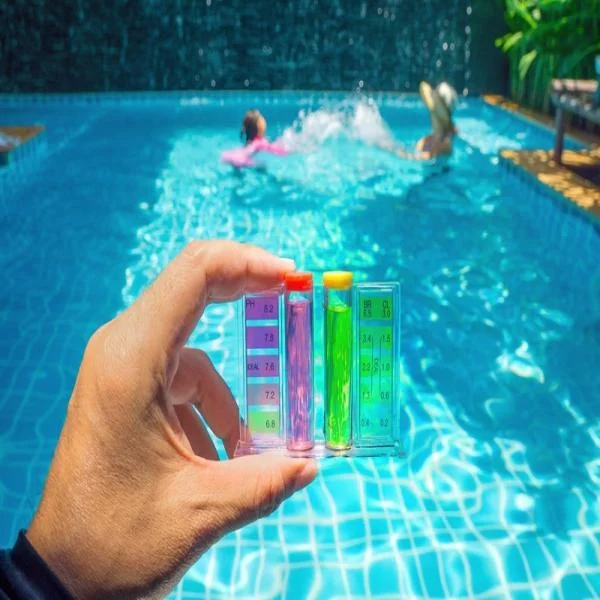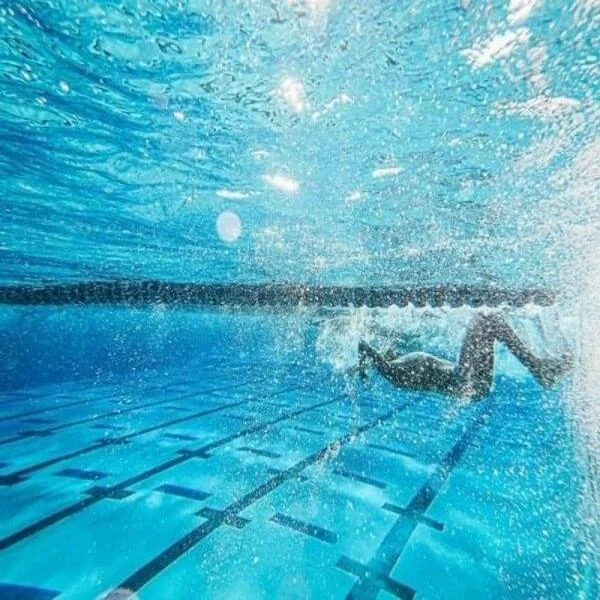
Contaminants create foam in pool water and tend to stick around, causing your pool an unattractive, dirty-looking foam to float. While it might seem harmless at first, foam in pool water can be a sign of underlying problems with water chemistry or cleanliness that require attention. In this article, we’ll explore the causes of foam in pool water and offer solutions to prevent and remove it to keep your pool water clean, clear, and foam-free.
What is Foam in Pool Water?
Before finding out the causes of foam, it’s essential to understand what pool foam is. Foam in pool water is a layer of tiny air bubbles that form on the surface, white or off-white, and tend to collect in a corner of the pool. Pool foam can vary in thickness from thin bubbles to a thicker, more noticeable layer.
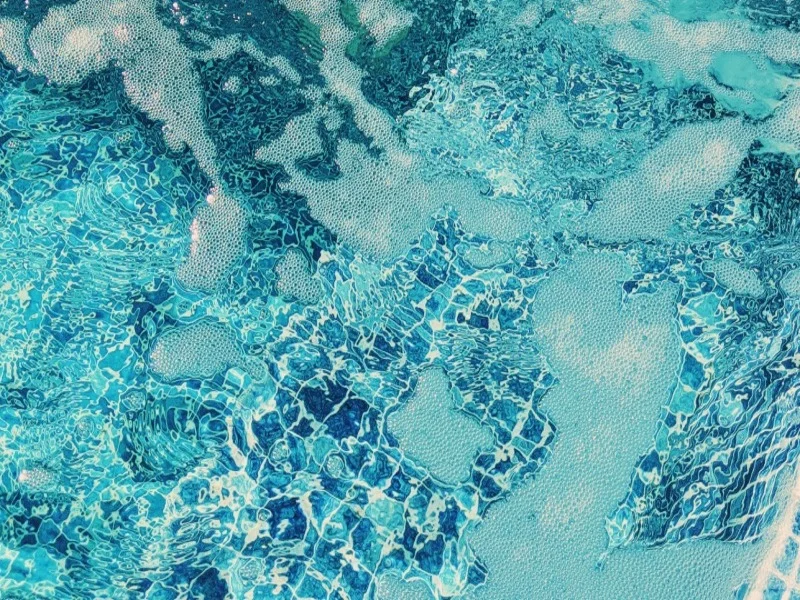
While foam might seem similar to the bubbles created by pool jets or splashing water, the difference is that foam lingers on the surface and does not dissipate quickly. This foam can indicate an imbalance in your pool's water chemistry or the presence of contaminants.
Common Causes of Foam in Pool Water
Foam in your pool water can form for several reasons, most related to the pool's water chemistry, and products used in or around the pool. Identifying the clear cause is the first step to preventing foam from forming.
High Levels of Organic Matter
One of the most common causes of foam in pool water is the accumulation of organic materials. Organic contaminants include sweat, body oils, sunscreen, lotion, and makeup. When swimmers use the pool, these substances wash off and mix with the water. Over time, they build up, leading to foam formation. The combination of these organic contaminants and insufficient filtration can cause the water to become saturated with oils and create foam on the surface.
Algaecide Use
The type and quality of chemicals you use to maintain your pool play a significant role in preventing foam. In particular, using low-quality or cheap algaecides can lead to foam formation. Some algaecides contain ingredients that can leave a soapy residue, resulting in foam when the water is agitated by pool jets or swimmers. Low-quality chemicals may save you money upfront, but they often create more problems, like foam, down the line.
Imbalanced Water Chemistry
Another major cause of foam in pool water is improper water chemistry. If your pool's pH, alkalinity, or calcium hardness levels are not balanced, it can create conditions that encourage foam. In particular, low calcium hardness is a common contributor to foam. Calcium helps to keep the water from becoming too soft. Soft water, or water with low calcium hardness, can easily foam when agitated.
Detergents and Soaps
Sometimes, foam can be caused by accidental contamination from detergents or soaps. Even a small amount of cleaning solution that finds its way into your pool water can cause a frothy appearance. It’s important to be cautious when using any cleaning products around the pool and to thoroughly rinse away any residue before allowing it to come into contact with pool water.
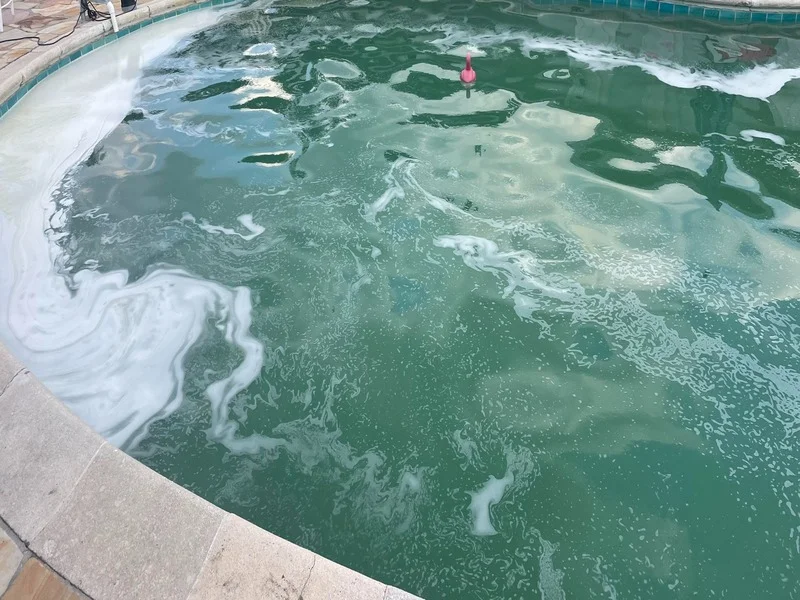
Dirty Filters
Pool filter plays a vital role in keeping the water clean by removing debris, oils, and other contaminants. If a filter is not working correctly or running long enough each day, organic materials and oils can accumulate, causing foam to form. Regularly cleaning and maintaining pool filters is essential for preventing foam and keeping the water clear.
Shocking the Pool Improperly
Shock treatments are essential for maintaining clear, sanitized water, especially after heavy pool use or rainfall. However, over-shocking the pool can lead to foam in pool water. Adding too much shock (chlorine or non-chlorine) at once can cause the water to react, leading to foam formation. Besides, some low-quality pool shock products may contain ingredients that contribute to foam formation, especially if they do not dissolve completely.
Excessive Aeration
While aeration is useful for water circulation and preventing stagnant water, too much air mixed into the water can cause foam in pool water, especially if the water chemistry is imbalanced or there are contaminants present.
How to Remove Foam in Pool Water
Now that we understand the causes of foam in pool water, let's look at the steps can take to eliminate it and restore the water to its normal condition.
Balance and Test the Water Chemistry
The first step to removing foam is to test the pool’s water chemistry. Use a test kit to check the pH, alkalinity, and calcium hardness levels. If any of these are out of balance, adjust them accordingly. Here’s a quick guide to ideal water chemistry levels:
- pH: 7.2 - 7.6
- Alkalinity: 80 - 120 ppm
- Calcium hardness: 200 - 400 ppm
If your calcium hardness is too low, add a calcium hardness increaser to bring it within the proper range.
Use a Pool Clarifier
Once your water chemistry is balanced, using a pool clarifier can help eliminate foam. Clarifiers work by binding small particles together, making it easier for your pool filter to remove them.
Clean the Pool Filter
Your pool filter might be clogged with oils or debris, which can contribute to foam formation. Take the time to clean or backwash your filter according to instructions. This step will help remove any built-up contaminants that could be causing foam.
Skim and Vacuum the Pool
While the filter is running, use a pool skimmer to remove any floating debris or foam from the water's surface. Vacuuming the pool can also help remove contaminants from the bottom of the pool that may be contributing to foam in pool water.
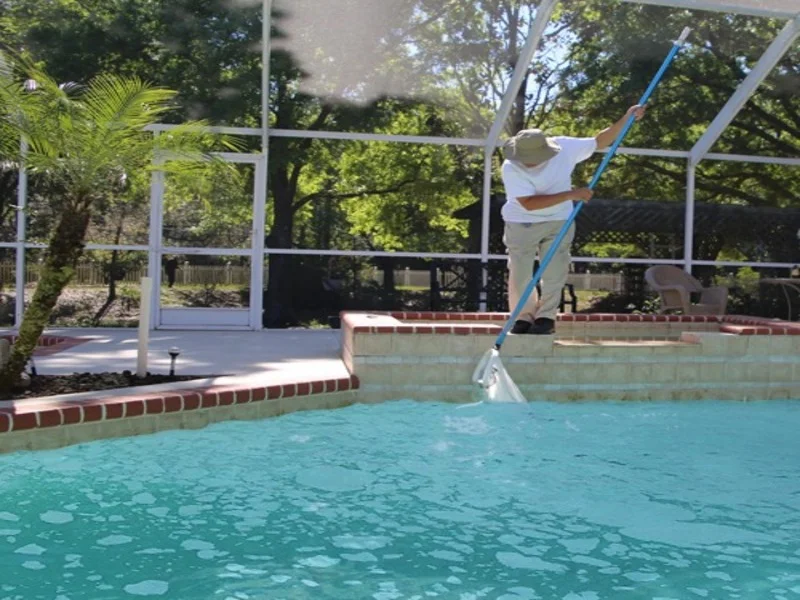
Shock the Pool
Regularly shocking your pool is essential for keeping the water clean and clear, but over-shocking or using low-quality shock products can lead to foam. Make sure you’re using a high-quality pool shock product that dissolves completely in the water. Follow the recommended dosage for the pool size and avoid adding too much shock at once.
Preventing Foam in the Future
After removing foam from your pool, it’s important to take steps to prevent it from coming back. Here are some tips for keeping your pool foam-free:
Use High-Quality Swimming Pool Chemicals
Invest in high-quality pool chemicals, especially when it comes to algaecides and clarifiers. Avoid products that contain ingredients known to cause foam, such as copper-based algaecides or those with surfactants.
Regular Test and Balance Pool Water
Regularly test pool water to ensure pH, alkalinity, and calcium hardness levels are within the recommended range. Keeping your water chemistry balanced prevents foam-causing issues like low calcium hardness.
Shower Before Swimming
Encourage swimmers to take a shower clean before entering the pool. This simple step helps reduce the amount of body oils, lotions, and sunscreen that enter the pool and contribute to foam formation.
Clean Pool Filter Regularly
Clean or backwash your pool filter regularly according to the recommendations. A clean filter is more effective at removing oils and contaminants from the water, reducing the likelihood of foam.
Limit the Use of Pool Shocks
While shocking the pool is necessary for maintaining water quality, overuse can lead to foam. Follow the dosage instructions carefully, and avoid adding more shock than necessary.
Where to Buy Chemicals to Treat Foam in Pool Water
Dong A Chemical is a leading factory in Vietnam that specializes in providing Chlorine chemicals for water treatment swimming pools. As a trustworthy address for many customers, Dong A ensures that all water treatment chemical products meet high-quality standards and have clear origins. Besides, when you buy from Dong A, you also enjoy the best prices on the market.
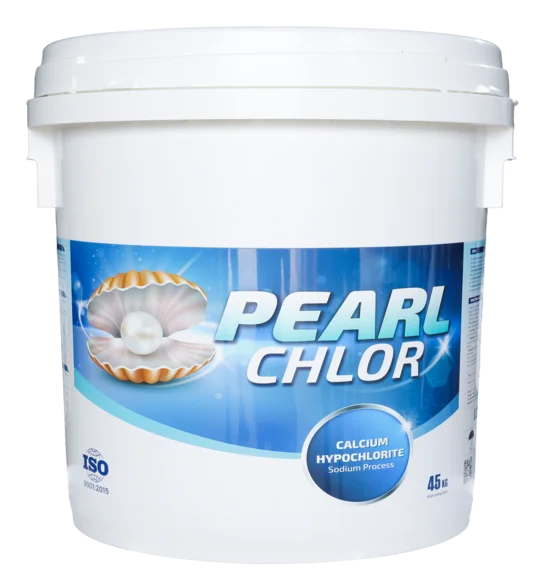
Hopefully, with the information in this article, you understand the cause and how to remove foam in pool water. If you need to buy a product, please immediately contact us via hotline (+84) 985797941 for advice and the best price.
Related Articles
Why Does Change Pool Water Color? Common Reasons Explained
A pool water color blue pool is every pool owner’s dream. However, maintaining that crystal-clear ...
How to Clean Pool Tiles: Remove Calcium Deposition, Stains, and Algae
Keeping clean pool tiles is essential for maintaining your swimming pool's appearance and ...
The Best Ways to Clean a Pool Liner and Prevent Stains
A clean pool liner is essential for maintaining a crystal clear and safe swimming pool. Over time, ...
Why Pool Water pH Important and How to Maintain It
Maintaining the correct pool water pH level is crucial for the safety of swimmers, the longevity of ...
Everything About Ozone Pool Systems Need to Know
Ozone plays an important role in protecting us from the sun, but did you know it can also protect ...
Understanding Dissolved Oxygen: A Vital Component of Aquatic Ecosystems
Dissolved oxygen (DO) is a crucial element in aquatic ecosystems, playing a fundamental role in ...

